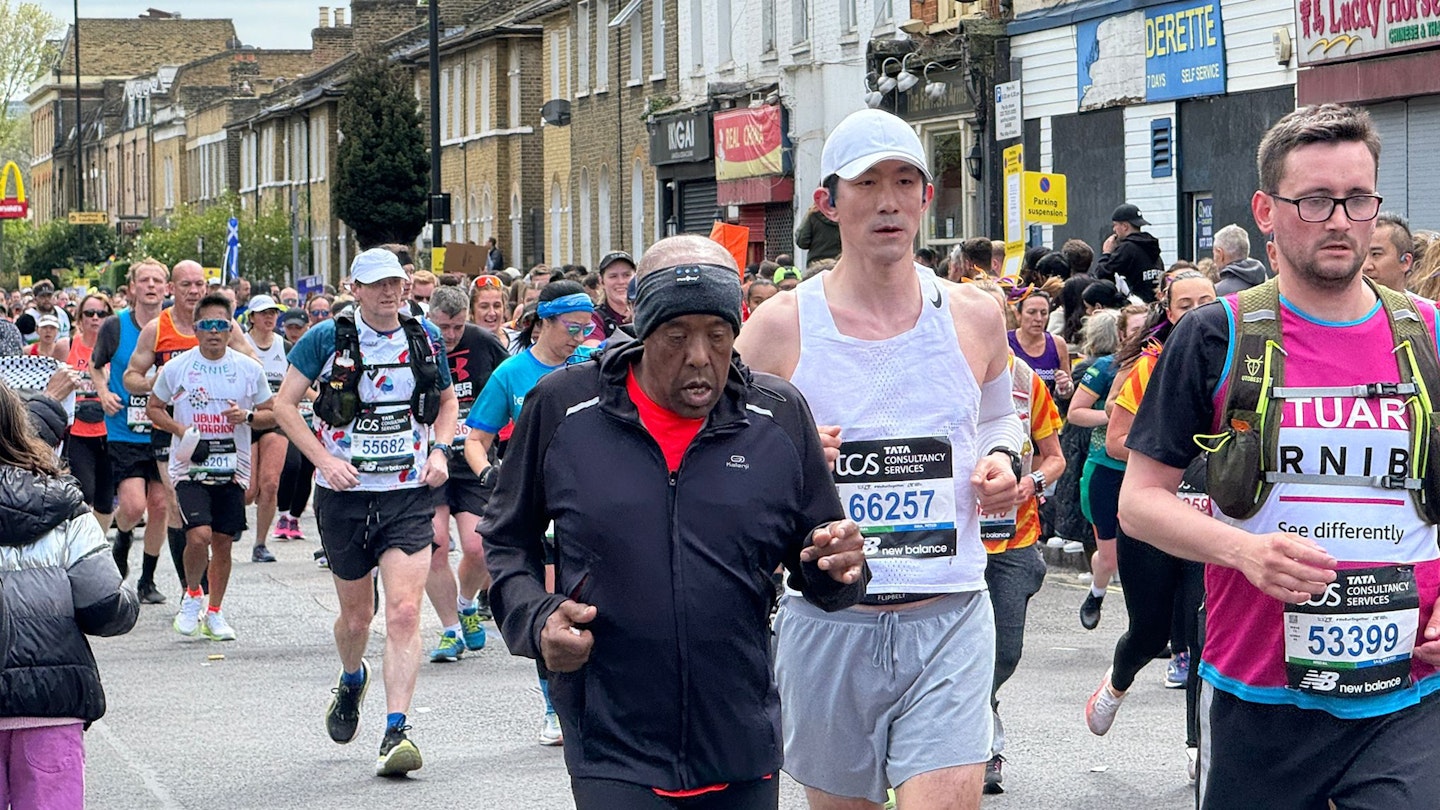Congratulations – you’ve run a marathon!
Running 26.2 miles places huge demands on both body and mind and now your focus should be on recovery. You’ll be sore, dehydrated, with depleted fuel stores and more susceptible to both injury and infection. Effective recovery is just as crucial as your pre-marathon training to help your body repair, rejuvenate and come back stronger.
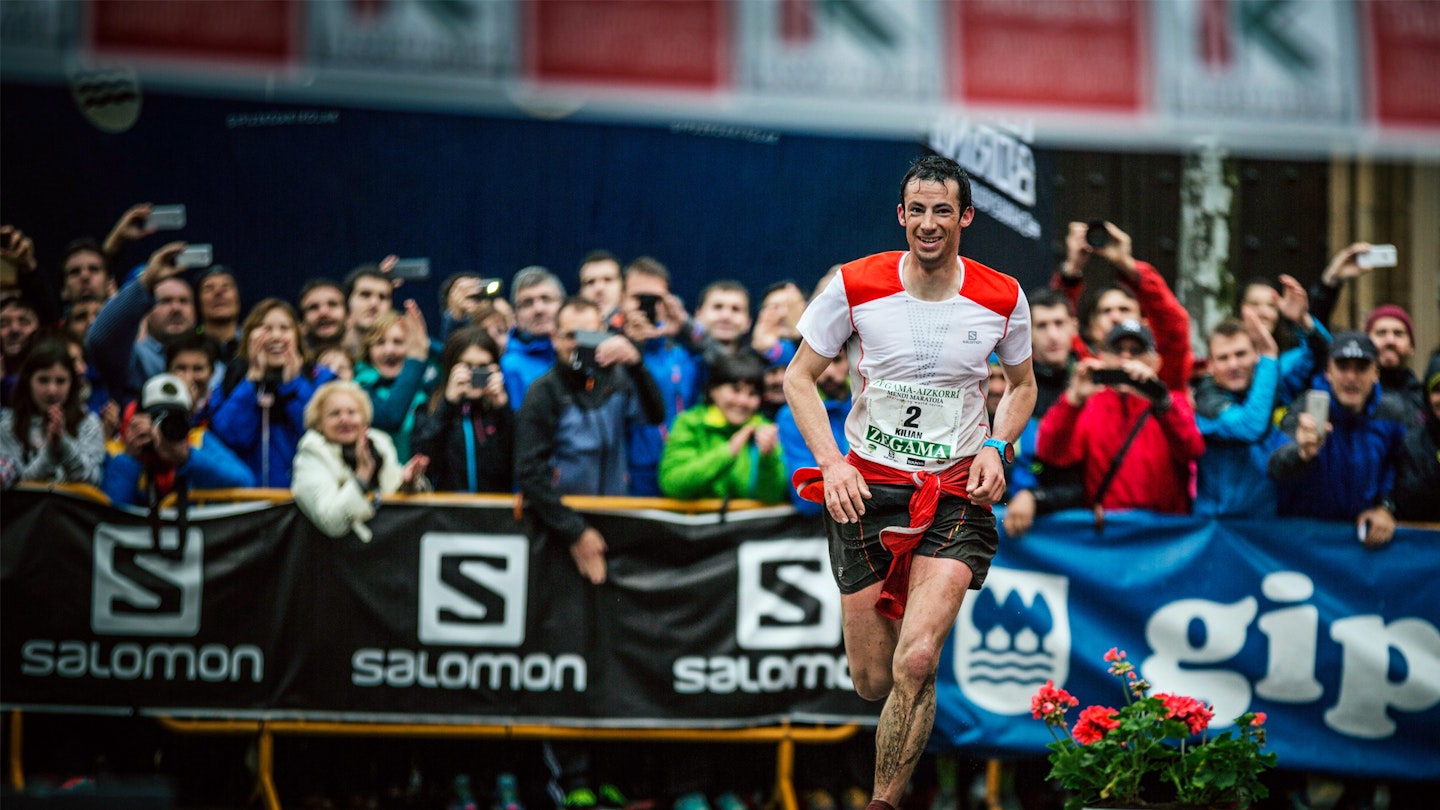
These top tips come from Ben Mounsey, professional fell and mountain runner who eats marathons for breakfast. He's represented Great Britain in world-wide and European races, and placed 2nd in the World Masters Mountain Running Championship 2019. Mounsey is also the lead writer for Sportsshoes.com, who are our content partner for this review.
We work with Sportsshoes to bring our readers discounts on trail running shoes and other gear. To get your hands on these LFTO X Sportsshoes discounts, head over to our #Run1000Miles page and see if you're up to the challenge! For now, let's get on with our marathon recovery guide.
1. Damage control
Your legs have carried you for an incredible 26.2 miles, and this intense effort manifests itself in deep muscle fatigue, inflammation and soreness, and hard wear and tear on connective tissues. DOMs (Delayed Onset Muscle Soreness) typically kicks in within hours of crossing the finish line, resulting in sore calves and quads. You’ll probably notice this the first time you tackle the stairs, a common post marathon problem!
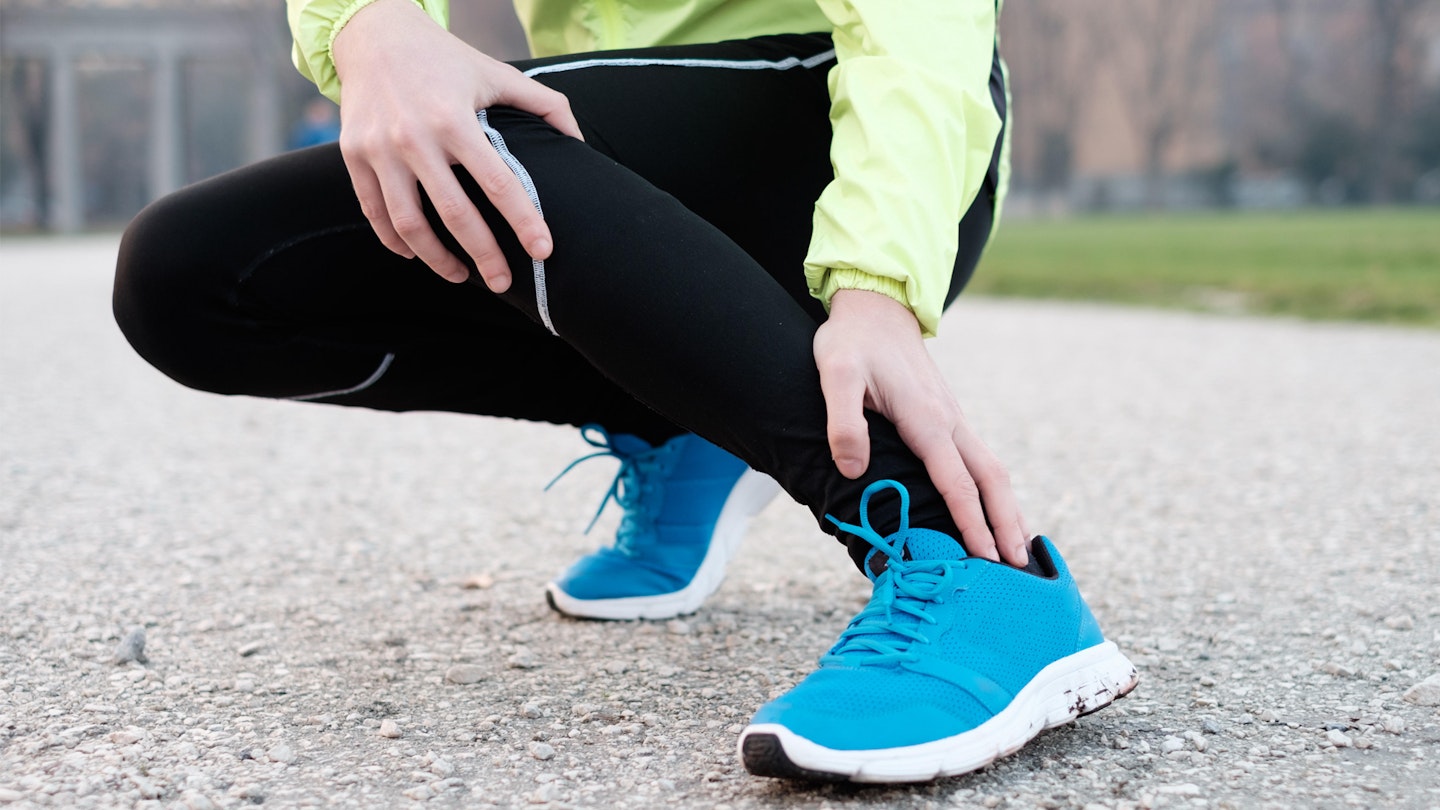
It can take up to 14 days for muscles and the skeletal system to fully recover, with some muscle fibre damage still present up to 30 days later. The severity of this depends on your individual fitness and mileage before the marathon and during this period, you’ll be more susceptible to injury.
If you can, try to lie down with your feet elevated for an hour post marathon, and for at least 30 minutes a day over the following few days. Applying an ice pack to very sore areas can also help reduce inflammation. Heating adds to microtrauma of the muscles, so as tempting as it is, avoid hot bath tubs, and if you can face it, take an ice bath to help reduce inflammation and sooth sore muscles.
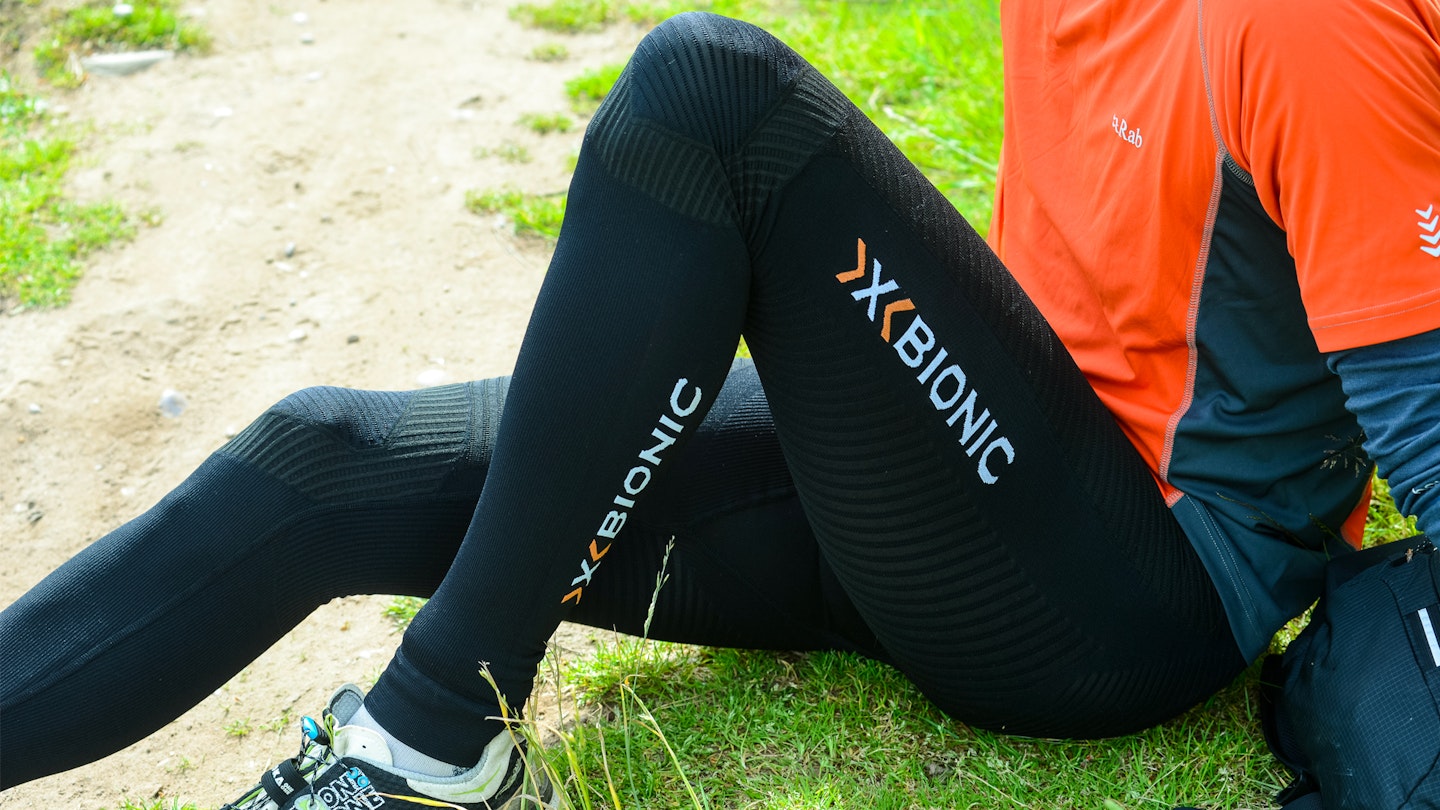
Compression tights help to speed up recovery by helping transport oxygen-rich blood to tired muscles - many runners wear these at night after a marathon to help aid recovery. Save your foam roller for 3-4 days later, when your muscles have passed the acute damage phase and avoid taking anti inflammatory painkillers such as Ibuprofen, which can slow down and impair muscle repair.
2. Refuel and Rehydrate

It’s as important to hydrate after the race as it is before and during. Water is fine but ideally choose carbohydrate-rich fluids such as sports drinks or even coconut water to help replace lost water, electrolytes and glycogen stores quickly and effectively. You’ll know that you’re hydrating adequately if your urine is a pale straw colour.
Your fuel stores are now massively depleted and refuelling is a post race priority. Refuelling works best immediately after exercise when the body is eager to absorb energy. It’s normal to struggle to eat immediately post marathon, but make it a priority to refuel with carbohydrate rich food and drink as soon as your stomach can tolerate it, ideally within the first two hours, or failing that within 4-6 hours, after which the rate of absorption starts to fall off.
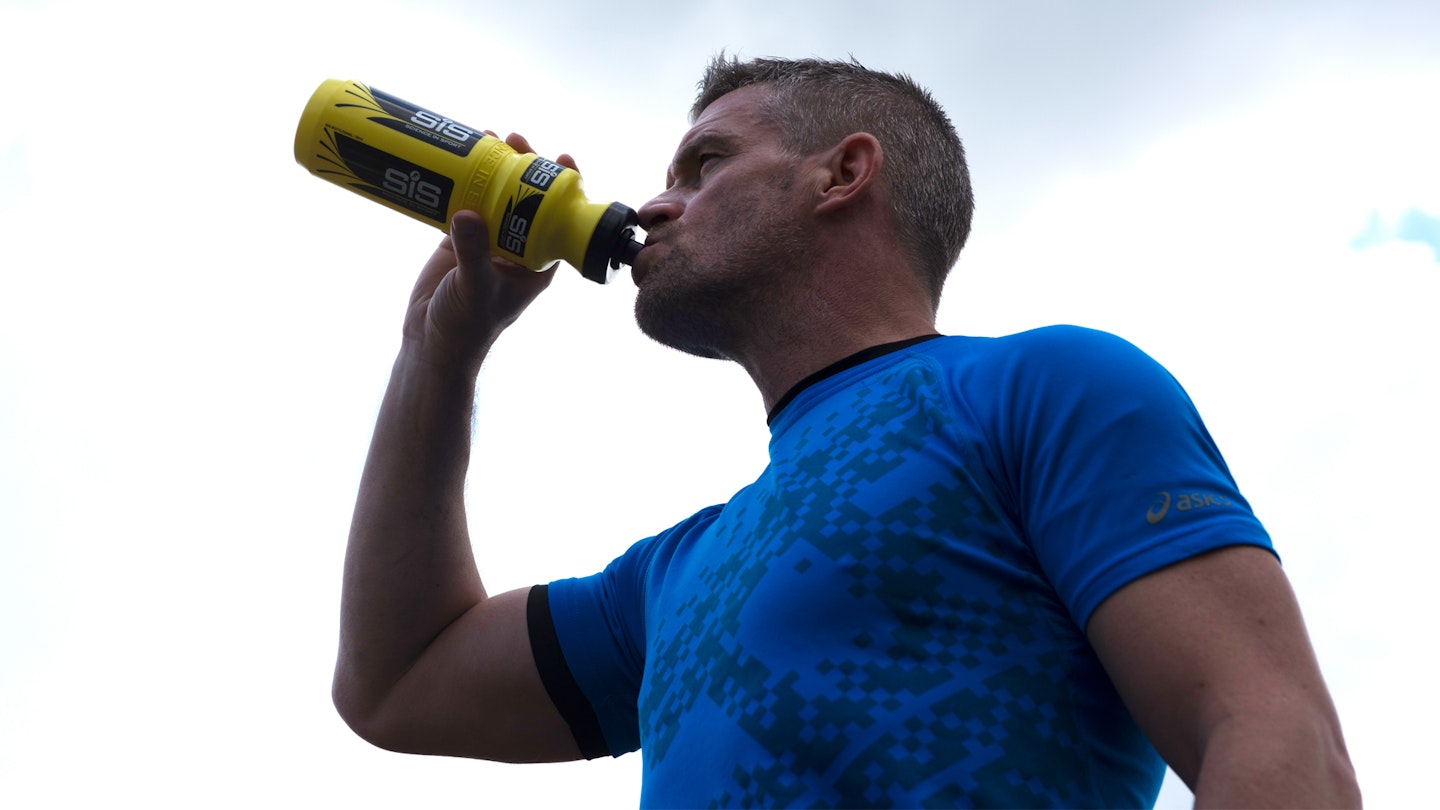
High carbohydrate fluids such as sports drinks are digested more quickly than solid carbohydrates, and a good option for immediately post race - and a lot of races supply these at the finish. Also follow a high carbohydrate diet for at least 46 hours - carbs should comprise 65% of your total calorie intake for the next few days. Here, fast-acting high glycaemic foods such as bread, baked potatoes and white rice work best, quickly boosting blood-glucose levels and driving glycogen to the muscles.
3. Boost your immune system
Running a marathon triggers the release of stress hormones, in particular cortisol which suppresses and stresses different components of the immune system, diverting white blood cells to repair muscle damage, and leaving you susceptible to infection. This altered immunity can last from 3-72 hours after a marathon, presenting the ideal opportunity for viruses and other pathogens to invade.
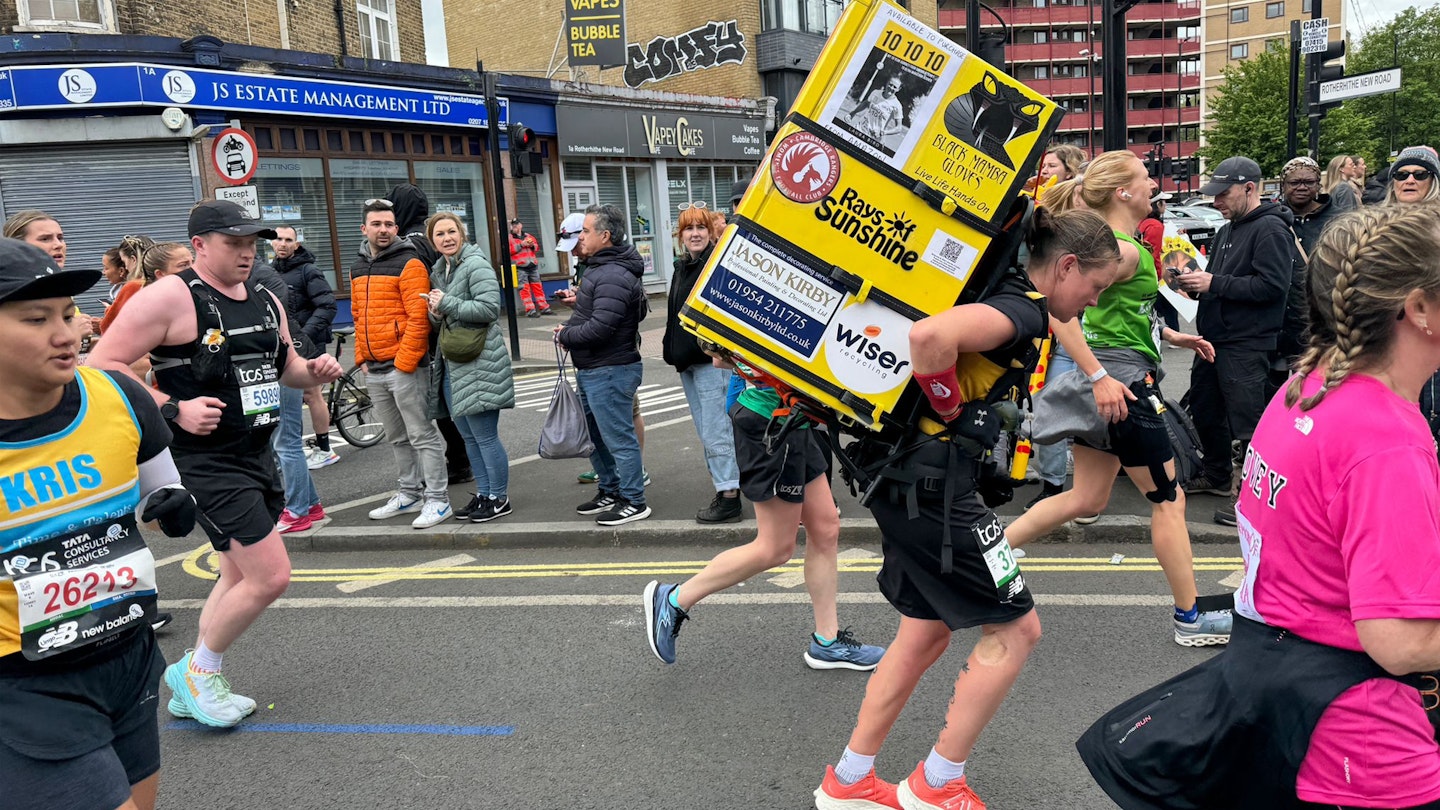
Help boost your immune system by making sure you get a good amount of rest and eating a nutrient-rich diet. Studies suggest that antioxidant vitamins, particularly Vitamin E (found in almonds, kale spinach and raw seeds) can hasten recovery of damaged muscle and connective tissue, free-radical damage, immune-system suppression, and oxidative stress caused by running.
4. Get some sleep
You’re probably going to be feeling pretty tired for the next few days, and sleep is when the body rebuilds and repairs itself best. Listen to your body, and nap and sleep when it tells you it needs to. Again, if you can, try to sleep for an hour after the race with your feet up.
5. Beat the post-marathon blues
The build up to the big day, the hours of training and the huge commitment you made to your marathon goal have been life-consuming. After the initial euphoria of finishing, many marathon runners are hit with a sense of anticlimax and lack of purpose, having attained their long sought after goal, which in turn can lead to depression and apathy.

Use your recovery period to identify your next challenge, there are many more out there! Sign up for an ultra, a marathon in a different country, or focus on a new PB challenge. It’s also a good time to catch up with family and friends who have probably felt pretty sidelined by your marathon commitments, and while you’re at it, do all the things you wanted to do but couldn’t because you were marathon training. Relax and enjoy yourself - you’ve earned it.
6. Reverse taper
The first question many marathon runners ask is when they can run again. This is dependent on the individual but bear in mind that your body is in recovery mode for up to 30 days post marathon. Come back too soon and you risk injury and the symptoms of overtraining. Some recovery plans go so far as to advocate resting a day for every mile run - 26 days of no running in total! As a basic guide, aim to reverse taper back to full activity.
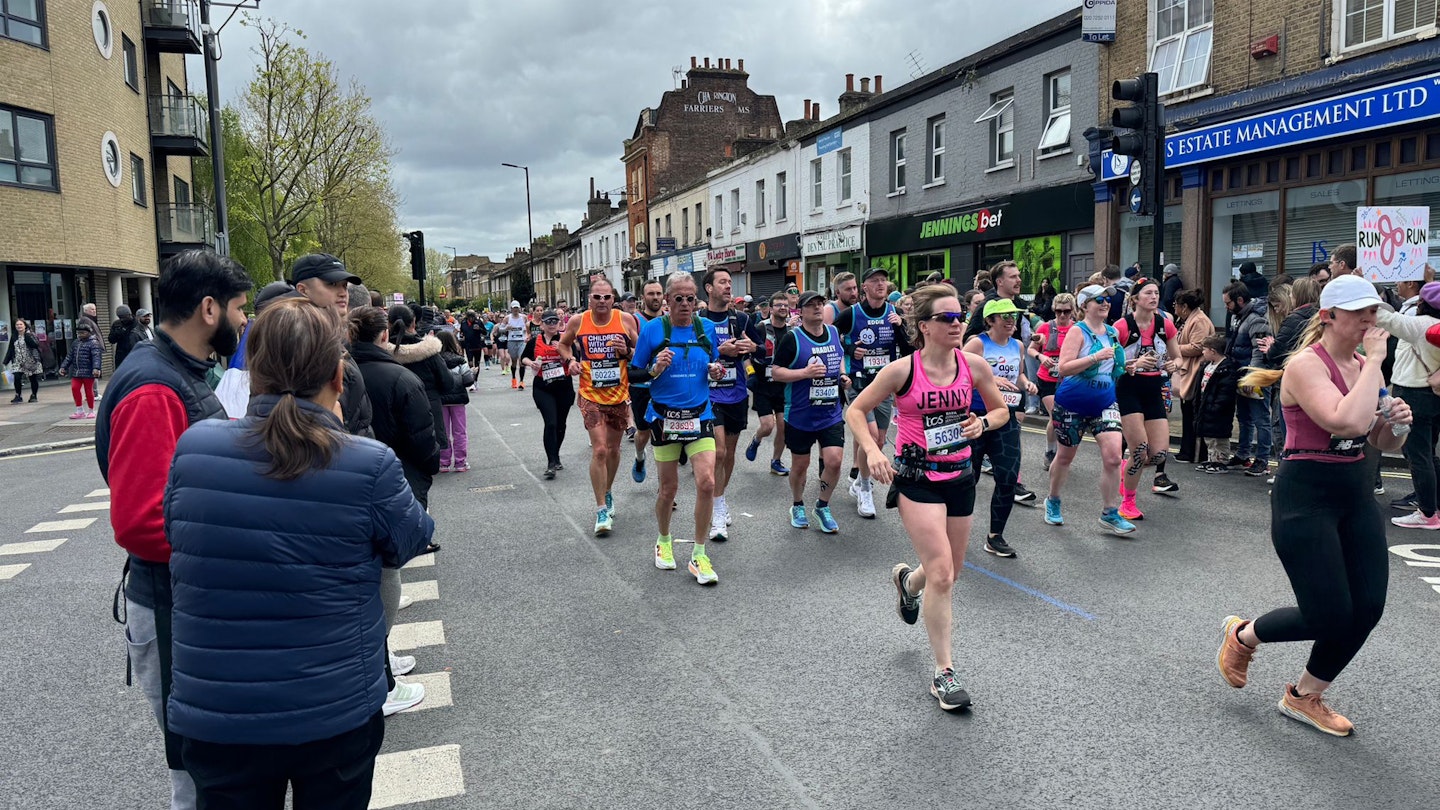
Week 1
No running or aerobic activity. Pretty much all research demonstrates that running in the week after a marathon has zero benefit, with some studies suggesting it can actively hinder recovery. Rest up this week, although a little light walking is better than no activity at all.
Week 2
Reintroduce aerobic activity. This can include swimming and light cycling. If you must, you can include a few short, easy runs, but the idea is not to do anything to delay the healing of muscle tissue in the legs - waiting until 14 days out before running again is better.
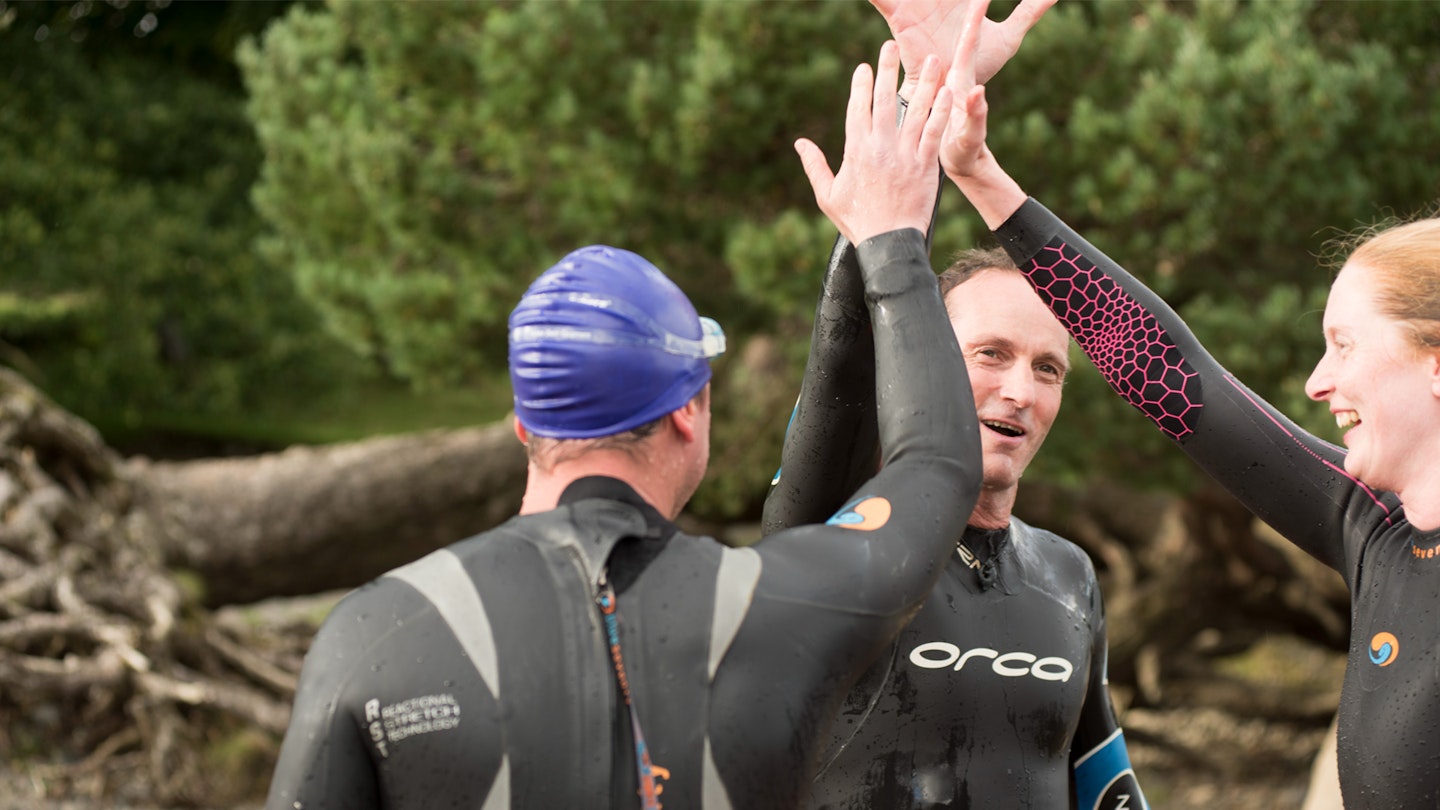
Week 3
Introduce steady, low intensity running sessions, intermixed with rest days and gentle cross training. It goes without saying to avoid speed and interval sessions, listen to your body and run on softer surfaces where possible to reduce impact.
Week 4
You should be hitting week 4 feeling rested, refreshed and rejuvenated and can gradually start returning to normal. You can introduce some gentle tempo runs and start to gradually increase mileage over the next couple of weeks. Listen to your body, and back off again at the first sign of fatigue or soreness. By the time you reach week 6, you should be feeling fresh, strong and ready for your next challenge.

Want to find out more? Here at LFTO, we have tonnes of advice on the benefits of trail running over road, as well as more expert tips from ultra athletes. Meanwhile, our content partners at Sportsshoes have a dedicated Marathon category with everything you need to know about conquering that 26.2 mile mountain.
